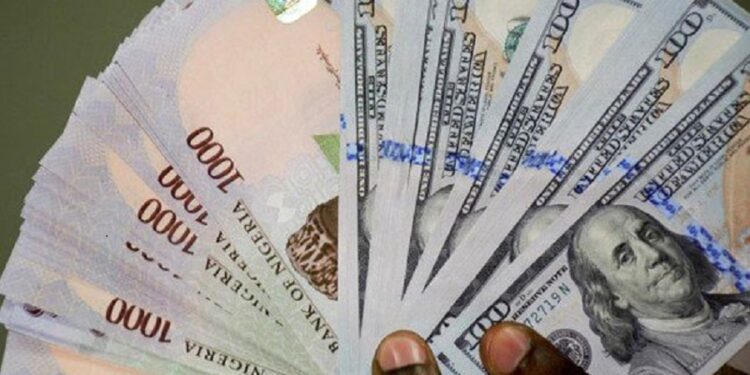The Nigerian naira demonstrated a notable resurgence against the United States dollar on Wednesday, both in the official and parallel markets, with significant gains observed particularly in the black market.
This development coincided with the Central Bank of Nigeria’s announcement of the final settlements of all valid foreign exchange backlogs, marking the fulfillment of a significant commitment by the CBN governor, Mr. Olayemi Cardoso, to address an inherited backlog of $7 billion in claims.
Mrs. Hakama Sidi Ali, the Acting CBN Director of Corporate Communications, revealed this in Abuja on Wednesday, noting that the central bank had recently cleared $1.5 billion from the backlogs.
On Wednesday, data from the FMDQ Securities Exchange indicated that the naira closed trading at 1,410/dollar at the parallel market and N1,492 at the official Nigerian Autonomous Foreign Exchange Market. This represents a substantial appreciation of N68 or 4.5% from the previous day’s rate at NAFEM and a gain of 13.5% or N190 at the parallel market.
The recent strengthening of the naira can be attributed to various factors, including reduced demand due to CBN clampdowns and the clearance of foreign exchange backlogs. Additionally, recent EFCC operations targeting illegal Bureau De Change operators in key cities like Lagos, Abuja, and Kano have contributed to stabilizing the naira.
Currency traders in various regions such as Abuja and Lagos reported shifts in trading patterns, with some traders experiencing losses due to decreased demand for the dollar. Nevertheless, there is optimism among traders regarding a potential further appreciation of the naira if current trends persist.
The increased liquidity in the foreign exchange market has been facilitated by recent CBN reforms aimed at achieving a more transparent and stable market. These reforms include measures to enhance liquidity, promote price discovery, and restore confidence in the banking system.
The successful clearance of the FX backlog signifies a significant milestone in Nigeria’s financial landscape, fostering confidence among investors and paving the way for a more resilient economy. As the nation progresses, the positive implications of this development are expected to reverberate across various sectors, bolstering economic growth and stability.
























